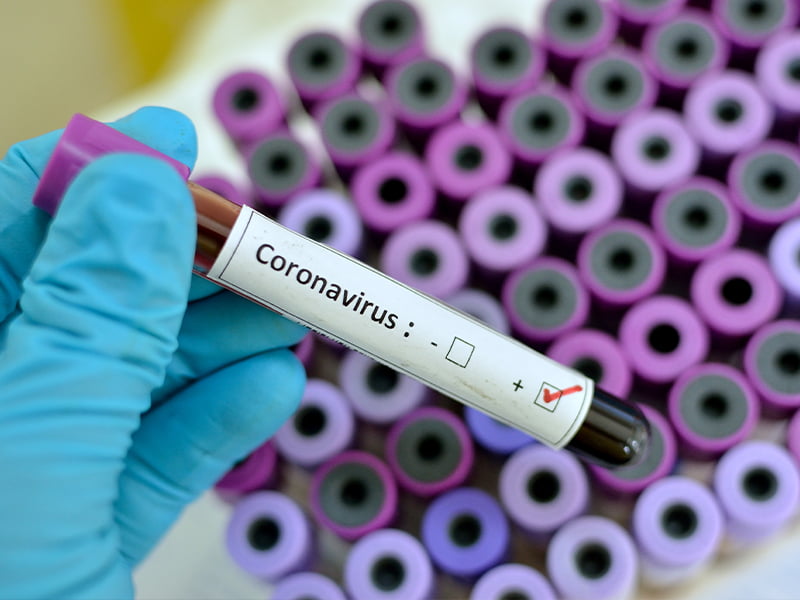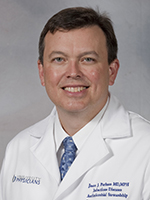COVID-19: Risk in Mississippi low, but experts predict rise in U.S. cases

Editor's Note: This article was updated on March 11 to reflect new information and updated patient numbers.
Mississippians remain at low risk for the novel coronavirus strain, or COVID-19, a respiratory illness first detected in late 2019 in China.
COVID-19, which originated in Wuhan City in China’s Hubei Province, has caused 4,594 deaths worldwide as of 5:00 p.m. March 11. The vast majority – 3,046 – were in mainland China, statistics from the Center for Disease Control and Prevention show. Thirty-two deaths have occurred in the United States, two in Florida, four in California, one in New Jersey, one in South Dakota and 24 in Washington state. It has infected 125,108 people globally, 1,135 of those in the United States and 80,921 in mainland China. The World Health Organization on March 11 declared COVID-19 a global pandemic.
Its main symptoms include those experienced by many suffering from influenza: a cough, fever and difficulty breathing. The influenza season remains very active in Mississippi, and University of Mississippi Medical Center infectious diseases specialists say that’s the immediate threat to residents, especially those who haven’t been immunized against the flu.

While Mississippi hasn’t seen an active COVID-19 case, “we do need to realize that there are other respiratory illnesses that we are dealing with from day to day,” said Dr. Jason Parham, director of the Division of Infectious Diseases in UMMC’s Department of Medicine. “That has not changed.”
Working hand in hand with the Mississippi Department of Health and the U.S.Centers for Disease Control and Prevention, the Medical Center has processes in place to identify who should be screened for COVID-19, as well as answer questions from patients and the public, Parham said.
The Medical Center is asking all patients arriving at the Emergency Department or any other outpatient areas about their history of travel outside this country, and their exposure to any person who has traveled outside of the United States.
As COVID-19 spreads through communities, guidelines from the U.S. Centers for Disease Control and Prevention on who should be screened are changing and may continue to change.
Screenings will take place on someone experiencing fever and signs/symptoms of lower respiratory illness (cough, shortness of breath), and, in the last 14 days before symptoms appeared, had either a history of travel from any of five geographical areas outside the United States: China, Japan, South Korea, Italy and Iran; or close contact with a laboratory-confirmed COVID-19 patient.
In addition, given the increased evidence of community spread within the United States, CDC updated its guidelines on March 4 to say a physician's suspicion for COVID-19 is sufficient indication for testing for what appears to be a milder case not requiring hospitalization. They will base this on the local outbreak situation, and evaluation of those with severe respiratory illness of unclear origin.

“Infection Prevention, along with the Mississippi Center for Emergency Services and other key leaders, are making sure that if we identify a case, we will take the proper steps to minimize risk to other patients and staff,” said Dr. Bhagyashri Navalkele, medical director of Infection Prevention at UMMC.
If someone screened at the Medical Center meets the criteria for possible COVID-19 exposure and is showing symptoms of the disease, they will be immediately quarantined to minimize exposure to other patients and the health care staff, said Jason Smith, manager of emergency services at UMMC’s Center for Emergency Services.
That includes individuals who come to the Emergency Department, he said.

What’s covered in the screening process “is the very first question we ask when they present at the door,” Smith said. “Even as we get their name, we ask if they have traveled outside the United States, or if they’d had contact with anyone who has. If the answer is yes, they automatically get screened.”

The spread of COVID-19 worldwide “is such a rapidly evolving situation,” said Dr. Paul Byers, state epidemiologist with the Mississippi State Department of Health. “We have been aggressively responding to this for a number of weeks. Part of the response effort has been to engage our emergency operation centers and other agencies, including UMMC, to begin to prepare for the possibility of person-to-person transmission and the actions we would take.”
The Department of Health is casting a wide net in working with the CDC to identify any travelers to China and other countries where the virus has been confirmed, Byers said. “We are working with every hospital in the state to provide them with guidance on how to identify those individuals, and to triage them early, isolate them immediately under the appropriate conditions, and to manage them appropriately to limit transmission.”
There is no specific antiviral treatment for COVID-19. Most sufferers experience mild illness and recover with supportive care, Parham said. “There have been cases with severe respiratory illness, mostly pneumonia, requiring hospitalization,” Parham said. “Severe illness appears to be most frequently seen in those with underlying chronic conditions.”
Those with serious health conditions such as chronic obstructive pulmonary disease, cancer or other illnesses that compromise the immune system are more likely to experience complications from COVID-19, flu or pneumonia, Parham said. The very young and the very old also are often more at risk, he said.
If you have had a cold or cough, it could have been caused by a coronavirus – just not the COVID-19 strain. “Coronaviruses are a large family of viruses. Some cause respiratory illness in humans,” Parham said.
“Numerous other coronaviruses circulate among animals, including camels, cats and bats,” Parham said. In rare situations, animal coronaviruses can evolve and infect people and then spread from person to person, he said. That was the case with the coronaviruses Sudden Acute Respiratory Syndrome, or SARS, in 2003 and Middle East Respiratory Syndrome, or MERS, in 2012.
If UMMC providers suspect a patient has COVID-19, Navakele said, an alert will be generated and providers will take these steps:
- Front-line staff will place a surgical facemask on the patient and take them in a private room, beginning the process of minimizing contact and exposure to airborne virus. The patient likely will go to a negative pressure room, which allows air to flow into the room but not escape from the room.
- All providers entering the patient room will wear PPE, or personal protective gear, that can include special masks, eye protectors, gloves, gowns and shoe coverings.
- Providers will use dedicated equipment only for that patient room, and limit patient movement outside the room.
- Providers will allow no visitors with the exception of a child with a single parent, or an end-of-life situation.
Anyone who fits the screening criteria for COVID-19 and is having symptoms such as fever, cough or shortness of breath should call the doctor’s office or emergency department before they visit. Patients will receive special instructions before arrival to avoid the risk of exposing others in the office or waiting room.
Although the risk COVID-19 infection in Mississippi is very low, Navalkele said, members of the public should follow the same precautions that they would for flu or virus prevention:
- Wash hands often with soap and water for at least 20 seconds, or use an alcohol-based hand sanitizer containing at least 60 percent alcohol if soap and water isn’t available.
- Avoid touching your eyes, nose and mouth with unwashed hands.
- Stay home from work or school if you’re sick.
- Cover your cough or sneeze with the crook of your arm, or use a tissue and then throw it in the trash. Clean and disinfect frequently touched objects and surfaces.
“We have a high number of flu cases in Mississippi, and we are continuing to see an uptick,” Navalkele said. “If you are sick with the flu, you need to make sure you are staying home and taking appropriate precautions.”
On Thursday, Feb. 27, members of UMMC's Infection Prevention, Infectious Diseases and Emergency Services units and the Mississippi Department of Health gave an update on COVID-19 and novel coronavirus preparations and precautions the public can take to lessen the chance of infection.


